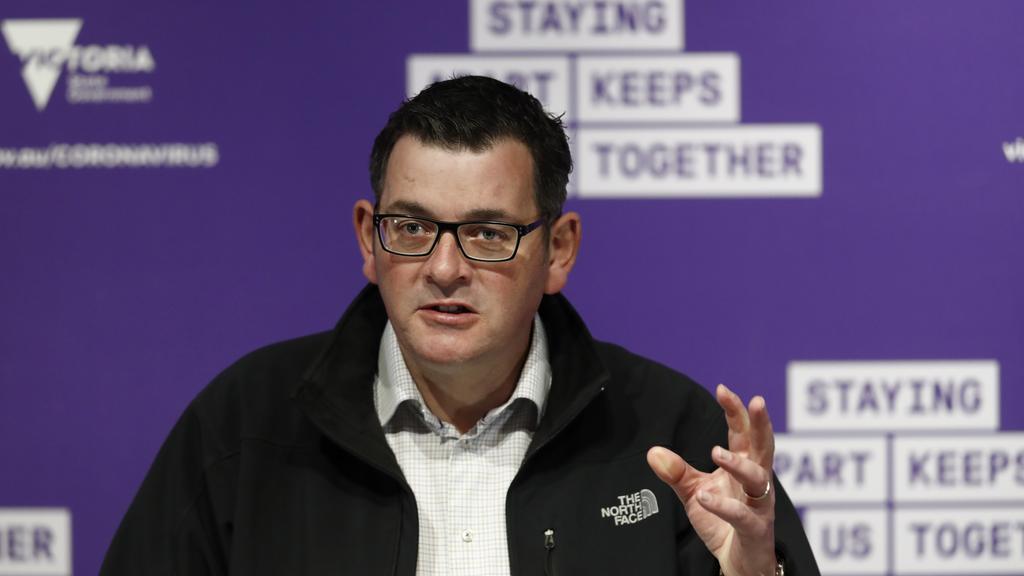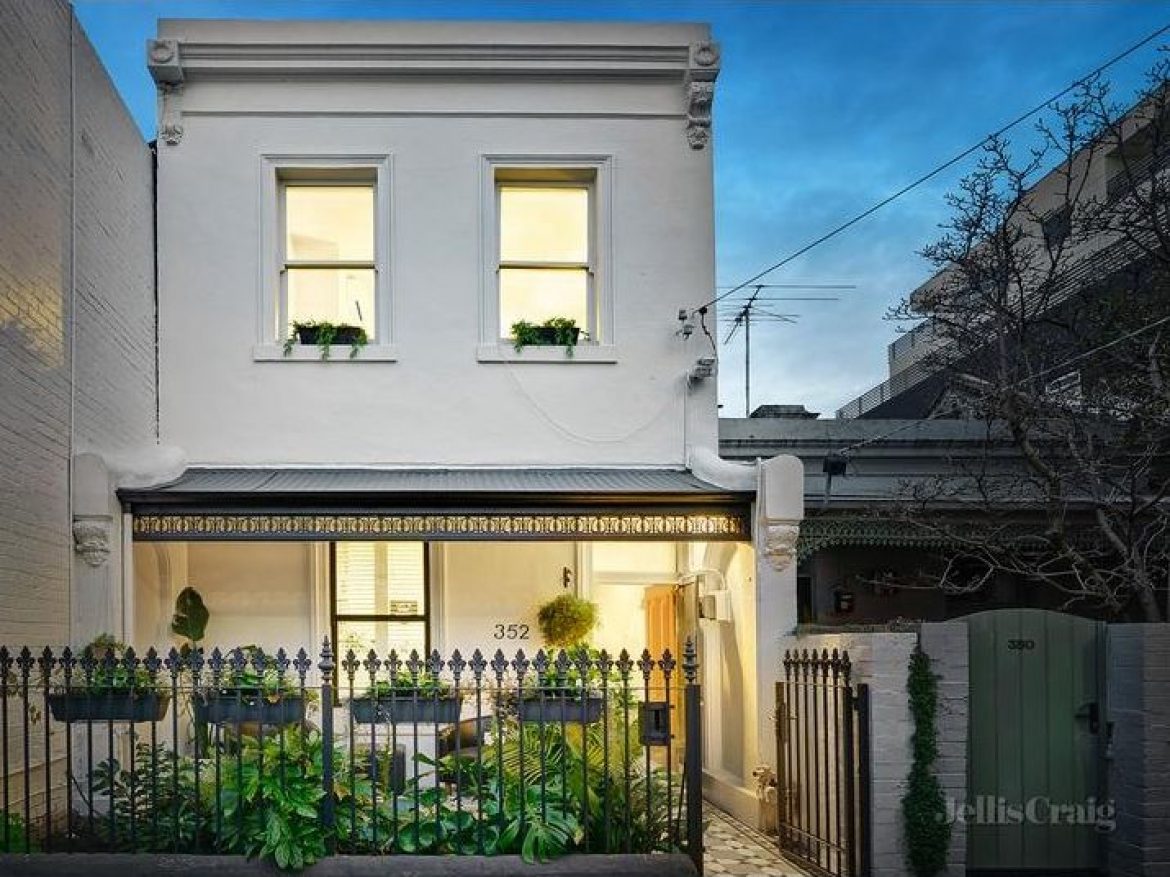With stage 4 restrictions now in place across metropolitan Melbourne due to a spike in COVID-19 cases, tenants are seeking clarification about how these new restrictions will impact their living arrangements.
Victorian Premier Daniel Andrews specified that property and real estate, among other industries, will close for six-weeks under the tighter restrictions, with home inspections and home auctions to continue online.
All Melburnians have to adhere to strict guidelines during the six-week lockdown period.
This has left many landlords, tenants and property managers confused about how to proceed, and with such high penalties for breaching stage 4 rules ($1,652 for individuals and $9,913 for businesses), it’s no wonder all parties have been hesitant with their movements.

Moving for some tenants will still be permitted under stage 4 restrictions. Picture: realestate.com.au.rent
“We have found that about 15% of the tenants we spoke to need to move inside the lockdown period and haven’t been able to secure anything. They’re uncertain if they are allowed to enter into a new tenancy [agreement] or if they are allowed to move,” said Sam Nokes, property manager at Jellis Craig.
However, over the past week, more clarity has emerged around the signing of new leases, moving home and general stage 4 rules for tenants. Here is what we know so far:
1. Can I move house?
Despite the 5km radius rule, tenants within metropolitan Melbourne are still able to move to a new home outside of the 5km radius, however, they cannot do so outside the curfew hours of 8pm to 5am, unless their reason for moving is due to family violence, in which case they can leave the house at any time.
Premier Daniel Andrews said in a press conference, “I don’t want to see people who are supposed to move from one place to another because the lease has run out unable to do so.”
Cleaners and removalists have been deemed as essential services during the lockdown, and many are now offering a contactless service. periodic and final inspections are allowed to go ahead by property managers in order to release bonds.
Property managers will be permitted into the property for all end of lease processes including a final inspection, along with providing new tenants with keys to their property, which was confirmed by the Real Estate Institute of Victoria (REIV) on 6 August.

Property inspections will be online only during stage 4 restrictions. Picture: Darrian Traynor / Getty
2. How will inspections happen moving forward?
Inspections of properties will move to digital-only in metropolitan Melbourne under stage 4 restrictions, however, inspections by private appointment will still be permitted in regional Victoria, which is under stage 3 rules.
Many property managers have already adopted the online strategy and are using the digital inspections tool on realestate.com.au, or organising video calls with prospective tenants.
One major issue property managers will face, however, is leasing a property without a tenant having physically inspected it. The majority of Victorian real estate agencies require this as part of their tenancy agreement.
Needless to say, properties will be difficult to fill during this time as REIV president Leah Calnan explained.
“The rental market will absolutely be impacted if we are unable to conduct private one-on-one appointments. While the option of virtual inspections is great, there are very few tenants that agree to sign leases and move into a property without having seen it in person,” Ms Calnan said.
Property managers are also yet to be given the green light to physically attend a property to film the digital inspection.
Mr Nokes said that they have been relying on pre-existing digital inspections and other digital methods of communication.
“We’re not creating any new digital inspections, but in saying that we’ve got some properties under a break lease situation and some properties where the landlord is occupying them, so we’re doing FaceTime calls and whoever is residing in the property is doing the walk around and allowing tenants to join in, that way nobody is actually leaving the property,” he said.
Chief executive of Tenants Victoria, Jennifer Beveridge, advised that if tenants do decide to lease a property without having physically inspected it, they should do so with caution.
“There are risks in taking a property without viewing it in person, but it may be the only option for some people while stage 4 restrictions are in place,” she said.
“It’s really important that renters always be aware of their rights. If they move into a property, which they didn’t see in person and later find it needs repairs, then they are entitled to, and the landlord is obliged to, ask for the repairs to be undertaken. This is so even while stage 4 restrictions are in place.”
3. What will happen if I can’t pay rent?
Many tenants have found themselves stood down from work and unable to pay rent or bills during the health crisis.
A moratorium on evictions is still in place with talks of it being extended within Victoria in light of the stage 4 lockdown.
Tenants and landlords have been encouraged to work together to figure out a solution, whether that be negotiating a rent reduction or deferral on payments.
There are six government support payments tenants can access during COVID-19 and Consumer Affairs Victoria also suggests that tenants experiencing difficulty should get in touch with the Tenancy Assistance and Advocacy Program for more advice.
Ms Beveridge said tenants have faced many challenges during the pandemic and the introduction of stage 4 restrictions in metropolitan Melbourne amid a national recession adds a new layer of complexity.
“Our message to renters is clear: if you are facing hardship, go for a rent reduction immediately. There is a DIY process in place here in Victoria, and even if you don’t have agreement from the landlord and agent, renters have the right to go to Consumer Affairs Victoria for mediation,” she said.
4. Can repairs still happen in my rental?
Only emergency repairs can happen during the six-week lockdown period. The following are classed as urgent repairs under Consumer Affairs Victoria guidelines:
-
- burst water service;
- blocked or broken toilet system;
- serious roof leak;
- gas leak;
- dangerous electrical fault;
- flooding or serious flood damage;
- serious storm or fire damage;
- failure or breakdown of any essential service or appliance provided by a landlord or agent for hot water, water, cooking, heating, or laundering;
- failure or breakdown of the gas, electricity or water supply;
- any fault or damage in the premises that makes the premises unsafe or insecure;
- an appliance, fitting or fixture that is not working properly and causes a substantial amount of water to be wasted and;
- a serious fault in a lift or staircase.
The post Stage 4 restrictions: Top four questions for Melbourne tenants appeared first on realestate.com.au.

